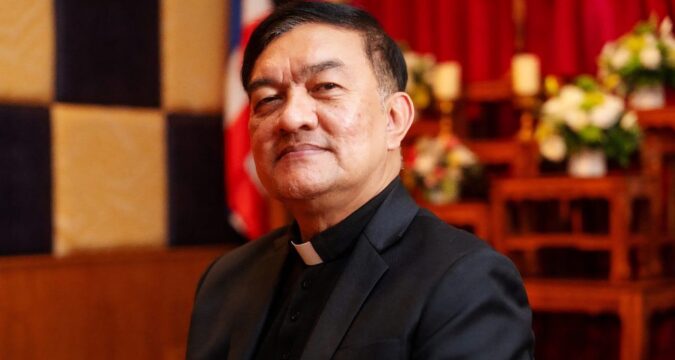
BANGKOK (LiCAS News): The Catholic Bishops’ Conference of Thailand [CBCT] released new Guidelines on Digital Culture on October 21, urging an ethical and faith-centered approach to the digital transformation reshaping modern life through artificial intelligence [AI] and technology.
The guidelines pose a central question: How can digital culture serve humanity without compromising our deepest values?
The bishops see technology not as a threat, but as a co-creative partnership with God—a tool that should uphold human dignity, protect the common good, and care for creation.
“Digital culture is profoundly transforming the human world, especially among the youth,” said Father Joseph Anucha Chaiyadej, secretary general of the CBCT’s Office of Social Communications.
“It has altered our experience of time and space. The Internet offers new opportunities for connection, but it also deepens loneliness, isolation, and marginalisation,” Father Chaiyadej added.
He warned that while social media can build communities, it is increasingly exploited for economic and political gain, fuelling ideological division and “verbal violence.”
[Digital culture] has altered our experience of time and space. The Internet offers new opportunities for connection, but it also deepens loneliness, isolation, and marginalisation, Father Chaiyadej
The Church, he stressed, must be ready to respond by shaping the digital world into a “space for evangelisation”—one that fosters justice, peace, and genuine human encounter.
“The Church must encourage and support digital missionaries,” he said. “Local churches should train and accompany young people who are active online, helping them use their creativity for good and to witness the gospel.”
Father Chaiyadej urged Catholic communities to cultivate “relationships of shared ownership” online—connections grounded in solidarity and participation rather than isolation. “The Internet,” he said, “offers a new opportunity for the Church to move forward together, as a network of communion.”
He acknowledged that artificial intelligence has brought significant benefits, easing many forms of human suffering.
AI may enhance human abilities, but it can never replace human creativity, freedom, or moral responsibility
Father Chaiyadej
However, he cautioned that without ethical oversight, AI could also deepen discrimination, exploit vulnerable groups, and undermine the human autonomy that defines true personhood.
“AI may enhance human abilities, but it can never replace human creativity, freedom, or moral responsibility,” the priest added.
The CBCT Guidelines on Digital Culture reaffirm the Church’s mission to uphold human dignity in every digital interaction.
Thailand’s bishops urged Catholics to use technology ethically and responsibly, promoting truth, compassion, and community rather than division and anxiety.
The Church leaders call on the faithful to engage online with discernment and integrity, transforming digital platforms into spaces of faith, hope, and authentic Christian witness.
“Technology must serve humanity—not the other way around,” Father Chaiyadej said.










